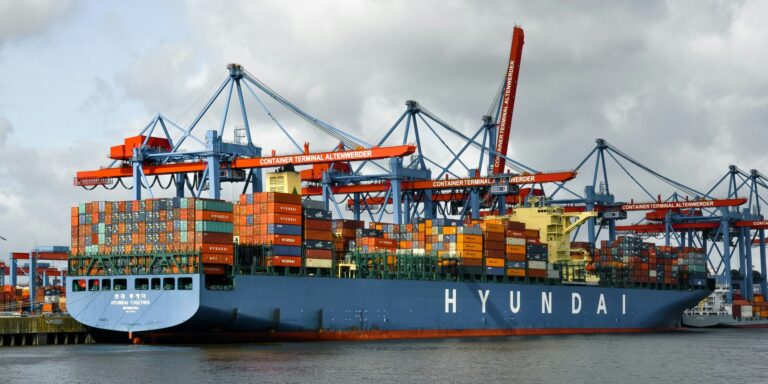U.S. business leaders are calling for the immediate suspension of a controversial new federal export control rule that, according to industry groups, is already disrupting billions of dollars in international trade. In a letter dated October 3 and released publicly this week, the National Foreign Trade Council (NFTC) urged the Trump administration to withdraw the recently implemented “Affiliates Rule.” This regulation prohibits U.S. companies from exporting goods, software, and technology to subsidiaries of foreign firms listed on the U.S. Entity List, even if those subsidiaries themselves are not sanctioned.
The NFTC, which represents major American companies such as Amazon and Exxon Mobil, argues that the Affiliates Rule is causing significant harm to U.S. exporters by extending the reach of sanctions far beyond their original scope. Businesses say the rule has already triggered a near-immediate halt in critical exports, especially to markets such as China, where supply chains often involve complex ownership structures. The organization claims the result has been a freezing of thousands of shipments and a backlog of export license applications awaiting approval by the Department of Commerce.
Business leaders say the policy shift threatens not only company revenues but the broader global competitiveness of U.S. industries. In the letter, NFTC President Jake Colvin stated that the rule “has resulted in an immediate pause of billions in U.S. exports, which is contrary to the administration’s stated goal of boosting American exports and reducing the trade deficit.” He added that if left in place, the policy would likely drive other countries—particularly China—to accelerate efforts to reduce their reliance on U.S. suppliers. Such a shift, the letter warned, could undermine U.S. leadership in advanced technology sectors and diminish America’s leverage in global markets.
The Affiliates Rule, introduced by the Commerce Department’s Bureau of Industry and Security (BIS) and implemented on September 29, builds upon existing export controls by targeting the subsidiaries of companies already sanctioned under the U.S. Entity List. Under this new approach, if a foreign company is 50 percent or more owned—either directly or indirectly—by an Entity-Listed firm, it is treated as if it were sanctioned as well. U.S. companies must now obtain licenses before engaging in any kind of business with such affiliates, and many of these license applications face strict review or outright denial.
Federal officials have said the rule is necessary to prevent sanctioned companies from circumventing export restrictions by routing goods through loosely affiliated or legally distinct entities. The BIS has described the measure as an essential step to close loopholes in the U.S. export control system. However, legal experts and compliance officers in the private sector have warned that the rule’s broad application and ambiguous ownership thresholds are creating confusion and compliance risks. Businesses must now conduct far deeper due diligence into the corporate structures of their foreign customers, often in regions where transparency is limited.
For many U.S. firms, particularly in the technology and energy sectors, the stakes are high. Products such as semiconductor components, software platforms, and specialized industrial machinery are among the exports affected. Companies say the additional legal uncertainty and delays in export processing are deterring new orders and placing them at a disadvantage compared to international competitors who are not bound by similar restrictions. The NFTC has called on the administration not only to rescind the Affiliates Rule but also to clarify how foreign ownership is defined in the context of export controls and to streamline the export licensing process overall.
The new rule has also drawn criticism from some trade analysts and former government officials, who argue that overly aggressive enforcement of export controls risks fracturing global supply chains in ways that could backfire. They caution that while the goal of restricting sensitive technologies from reaching adversarial regimes is sound, the means of achieving that objective should not come at the expense of U.S. innovation and economic leadership. Critics contend that overextending export controls can push foreign firms to develop domestic alternatives to U.S. products, eroding long-term American influence in key strategic industries.
At the heart of the debate is a broader question about how the U.S. government balances national security concerns with commercial interests. The Trump administration has prioritized a more confrontational stance toward China, tightening export rules and blacklisting numerous Chinese firms over alleged ties to military or surveillance operations. These moves have often been met with reciprocal measures from Beijing, escalating tensions between the world’s two largest economies.
The NFTC’s appeal underscores the deep unease among U.S. corporations about becoming collateral damage in geopolitical disputes. As of now, the White House and the Department of Commerce have not issued a public response to the letter. It remains unclear whether the administration will consider revising or suspending the rule in light of industry opposition, or whether it will double down on enforcement as part of its broader effort to decouple strategic sectors from China.
For now, American exporters are left to navigate a rapidly shifting regulatory environment, with little clarity on what lies ahead. As global trade tensions continue to mount, the future of U.S. export policy—and its impact on both national security and economic strength—remains a pivotal and unresolved issue.


